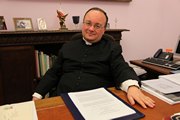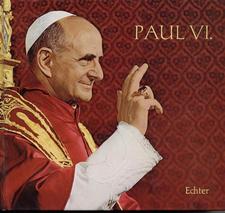 In an unusual step, the Vatican official who deals with matters of justice at the Congregation for the Doctrine of the Faith speaks publicly (March 13, 2010) on the sexual abuse crisis we are facing. Prayers, please! This is going to be a bumpy ride. John Allen’s article on this subject may be helpful.
In an unusual step, the Vatican official who deals with matters of justice at the Congregation for the Doctrine of the Faith speaks publicly (March 13, 2010) on the sexual abuse crisis we are facing. Prayers, please! This is going to be a bumpy ride. John Allen’s article on this subject may be helpful.
Given below is the text of an interview, published today by the Italian newspaper L’Avvenire, with Msgr. Charles J. Scicluna, promoter of justice of the Congregation for the Doctrine of the Faith, concerning the investigative and judicial activities of that dicastery in cases of “delicta graviora”, which include the crime of paedophilia committed by members of the clergy:
Msgr. Charles J. Scicluna is the “promoter of justice” of the Congregation for the Doctrine of the Faith. He is effectively the prosecutor of the tribunal of the former Holy Office, whose job it is to investigate what are known as “delicta graviora”; i.e., the crimes which the Catholic Church considers as being the most serious of all: crimes against the Eucharist and against the sanctity of the Sacrament of Penance, and crimes against the sixth Commandment (“thou shall not commit impure acts”) committed by a cleric against a person under the age of eighteen. These crimes, in a “Motu Proprio” of 2001, “Sacramentum sanctitatis tutela” [the Vatican Latin version is here], come under the competency of the Congregation for the Doctrine of the Faith. In effect, it is the “promoter of justice” who deals with, among other things, the terrible question of priests accused of paedophilia, which are periodically highlighted in the mass media. Msgr. Scicluna, an affable and polite Maltese, has the reputation of scrupulously carrying out the tasks entrusted to him without deferring to anyone.
Question: Monsignor, you have the reputation of being “tough”, yet the Catholic Church is systematically accused of being accommodating towards “paedophile priests.”
Answer: It may be that in the past – perhaps also out of a misdirected desire to protect the good name of the institution – some bishops were, in practice, too indulgent towards this sad phenomenon. And I say in practice because, in principle, the condemnation of this kind of crime has always been firm and unequivocal. Suffice it to recall, to limit ourselves just to last century, the famous Instruction “Crimen sollicitationis” of 1922.
Q: Wasn’t that from 1962?
A: No, the first edition dates back to the pontificate of Pius XI. Then, with Blessed John XXIII, the Holy Office issued a new edition for the Council Fathers, but only two thousand copies were printed, which were not enough, and so distribution was postponed sine die. In any case, these were procedural norms to be followed in cases of solicitation during confession, and of other more serious sexually-motivated crimes such as the sexual abuse of minors. [The 1962 text of Crimen sollictationis: Crimen sollicitationis.pdf]
Q: Norms which, however, recommended secrecy…
A: A poor English translation of that text has led people to think that the Holy See imposed secrecy in order to hide the facts. But this was not so. Secrecy during the investigative phase served to protect the good name of all the people involved; first and foremost, the victims themselves, then the accused priests who have the right – as everyone does – to the presumption of innocence until proven guilty. The Church does not like showcase justice. Norms on sexual abuse have never been understood as a ban on denouncing the crimes to the civil authorities.
Q: Nonetheless, that document is periodically cited to accuse the current Pontiff of having been – when he was prefect of the former Holy Office – objectively responsible for a Holy See policy of covering up the facts…
A: That accusation is false and calumnious. On this subject I would like to highlight a number of facts. Between 1975 and 1985 I do not believe that any cases of paedophilia committed by priests were brought to the attention of our Congregation. Moreover, following the promulgation of the 1983 Code of Canon Law, there was a period of uncertainty as to which of the “delicta graviora” were reserved to the competency of this dicastery. Only with the 2001 “Motu Proprio” did the crime of paedophilia again become our exclusive remit. From that moment Cardinal Ratzinger displayed great wisdom and firmness in handling those cases, also demonstrating great courage in facing some of the most difficult and thorny cases, “sine acceptione personarum”. Therefore, to accuse the current Pontiff of a cover-up is, I repeat, false and calumnious.
Q: What happens when a priest is accused of a “delictum gravius”?
A: If the accusation is well-founded the bishop has the obligation to investigate both the soundness and the subject of the accusation. If the outcome of this initial investigation is consistent, he no longer has any power to act in the matter and must refer the case to our Congregation where it is dealt with by the disciplinary office.
Q: How is that office composed?
A: Apart from myself who, being one of the superiors of the dicastery, also concern myself with other matters, there are the bureau chief Fr. Pedro Miguel Funes Diaz, seven priests and a lay lawyer who follow these cases. Other officials of the Congregation also make their own vital contribution depending upon the language and specific requirements of each case.
Q: That office has been accused of working little and slowly…
A: Those are unjustified comments. In 2003 and 2004 a great wave of cases flooded over our desks. Many of them came from the United States and concerned the past. Over recent years, thanks to God, the phenomenon has become greatly reduced, and we now seek to deal with new cases as they arise.
Q: How many have you dealt with so far?
A: Overall in the last nine years (2001-2010) we have considered accusations concerning around three thousand cases of diocesan and religious priests, which refer to crimes committed over the last fifty years.
Q: That is, then, three thousand cases of paedophile priests?
A: No, it is not correct to say that. We can say that about sixty percent of the cases chiefly involved sexual attraction towards adolescents of the same sex, another thirty percent involved heterosexual relations, and the remaining ten percent were cases of paedophilia in the true sense of the term; that is, based on sexual attraction towards prepubescent children. The cases of priests accused of paedophilia in the true sense have been about three hundred in nine years. Please don’t misunderstand me, these are of course too many, but it must be recognised that the phenomenon is not as widespread as has been believed.
Q: The accused, then, are three thousand. How many have been tried and condemned?
A: Currently we can say that a full trial, penal or administrative, has taken place in twenty percent of cases, normally celebrated in the diocese of origin – always under our supervision – and only very rarely here in Rome. We do this also in order to speed up the process. In sixty percent of cases there has been no trial, above all because of the advanced age of the accused, but administrative and disciplinary provisions have been issued against them, such as the obligation not to celebrate Mass with the faithful, not to hear confession, and to live a retired life of prayer. It must be made absolutely clear that in these cases, some of which are particularly sensational and have caught the attention of the media, no absolution has taken place. It’s true that there has been no formal condemnation, but if a person is obliged to a life of silence and prayer, then there must be a reason…
Q: That still leaves twenty percent of cases…
A: We can say that in ten percent of cases, the particularly serious ones in which the proof is overwhelming, the Holy Father has assumed the painful responsibility of authorising a decree of dismissal from the clerical state. This is a very serious but inevitable provision, taken though administrative channels. In the remaining ten percent of cases, it was the accused priests themselves who requested dispensation from the obligations deriving from the priesthood, requests which were promptly accepted. Those involved in these latter cases were priests found in possession of paedophile pornographic material and, for this reason, condemned by the civil authorities.
Q: Where do these three thousand cases come from?
A: Mostly from the United States which, in the years 2003-2004, represented around eighty percent of total cases. In 2009 the United States “share” had dropped to around twenty-five percent of the 223 cases reported from all over the world. Over recent years (2007-2009), the annual average of cases reported to the Congregation from around the world has been two hundred and fifty. Many countries report only one or two cases. There is, then, a growing diversity and number of countries of origin of cases, but the phenomenon itself is much reduced. It must, in fact, be borne in mind that the overall number of diocesan and religious priests in the world is four hundred thousand, although this statistic does not correspond to the perception that is created when these sad cases occupy the front pages of the newspapers.
Q: And in Italy?
A: Thus far the phenomenon does not seem to have dramatic proportions, although what worries me is a certain culture of silence which I feel is still too widespread in the country. The Italian Episcopal Conference (CEI) offers an excellent technical-juridical consultancy service for bishops who have to deal with these cases. And I am very pleased to observe the ever greater commitment being shown by Italian bishops to throw light on the cases reported to them.
Q: You said that a full trial has taken place in around twenty percent of the three thousand cases you have examined over the last nine years. Did they all end with the condemnation of the accused?
A: Many of the past trials did end with the condemnation of the accused. But there have also been cases in which the priest was declared innocent, or where the accusations were not considered to have sufficient proof. In all cases, however, not only is there an examination of the guilt or innocence of the accused priest, but also a discernment as to his fitness for public ministry.
Q: A recurring accusation made against the ecclesiastical hierarchy is that of not reporting to the civil authorities when crimes of paedophilia come to their attention.
A: In some English-speaking countries, but also in France, if bishops become aware of crimes committed by their priests outside the sacramental seal of Confession, they are obliged to report them to the judicial authorities. This is an onerous duty because the bishops are forced to make a gesture comparable to that of a father denouncing his own son. Nonetheless, our guidance in these cases is to respect the law.
Q: And what about countries where bishops do not have this legal obligation?
A: In these cases we do not force bishops to denounce their own priests, but encourage them to contact the victims and invite them to denounce the priests by whom they have been abused. Furthermore, we invite the bishops to give all spiritual – and not only spiritual – assistance to those victims. In a recent case concerning a priest condemned by a civil tribunal in Italy, it was precisely this Congregation that suggested to the plaintiffs, who had turned to us for a canonical trial, that they involve the civil authorities in the interests of victims and to avoid other crimes.
Q: A final question: is there any statue of limitation for “delicta graviora”?
A: Here you touch upon what, in my view, is a sensitive point. In the past, that is before 1889, the statue of limitations was something unknown in canon law. For the most serious crimes, it was only with the 2001 “Motu Proprio” that a statute of limitations of ten years was introduced. In accordance with these norms in cases of sexual abuse, the ten years begin from the day on which the minor reaches the age of eighteen.
Q: Is that enough?
A: Practice has shown that the limit of ten years is not enough in this kind of case, in which it would be better to return to the earlier system of “delicta graviora” not being subject to the statue of limitations. On 7 November 2002, Venerable Servant of God John Paul II granted this dicastery the power to revoke that statue of limitations, case by case following a reasoned request from individual bishops. And this revocation is normally granted.
 On the occasion of your trip to Africa in March 2009, the Vatican’s policy on AIDs once again became the target of media criticism. Twenty-five percent of all AIDs victims around the world today are treated in Catholic facilities. In some countries, such as Lesotho, for example, the statistic is 40 percent. In Africa you stated that the Church’s traditional teaching has proven to be the only sure way to stop the spread of HIV. Critics, including critics from the Church’s own ranks, object that it is madness to forbid a high-risk population to use condoms.
On the occasion of your trip to Africa in March 2009, the Vatican’s policy on AIDs once again became the target of media criticism. Twenty-five percent of all AIDs victims around the world today are treated in Catholic facilities. In some countries, such as Lesotho, for example, the statistic is 40 percent. In Africa you stated that the Church’s traditional teaching has proven to be the only sure way to stop the spread of HIV. Critics, including critics from the Church’s own ranks, object that it is madness to forbid a high-risk population to use condoms.

